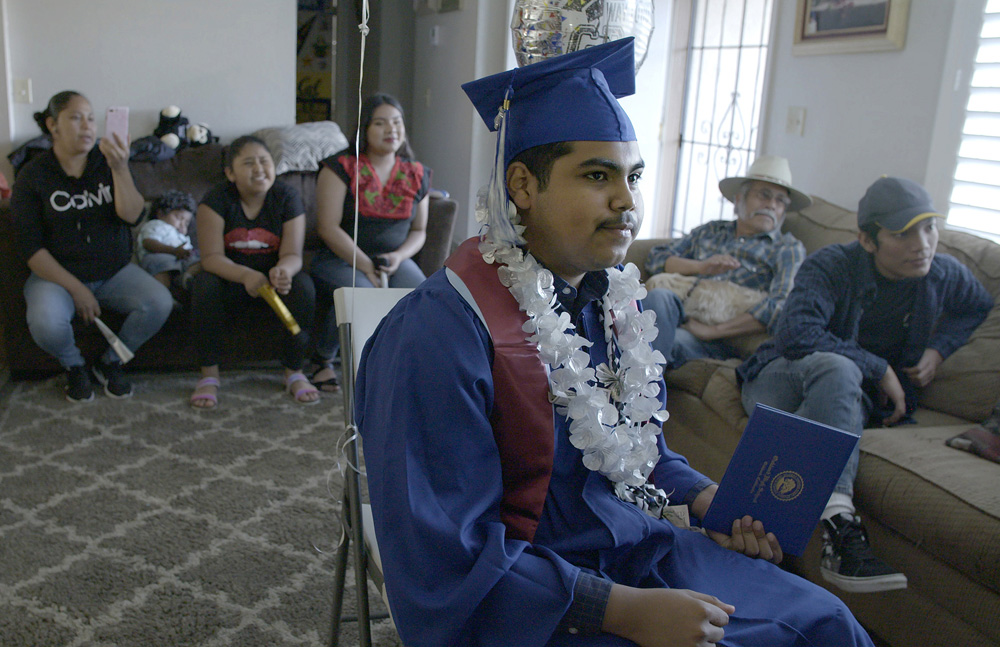It wouldn’t be necessary to watch “The Waiting Room” and “The Force” before seeing “Homeroom,” but over the past decade Peter Nicks has put together a series of films set in his hometown of Oakland that have formed a narrative arc that is larger than any one of the three. The director has said this was largely unplanned, but in spending time at the emergency room in Highland Hospital, the Oakland Police Department and now at Oakland High School, he’s created a portrait of people realizing what power they have – and that they don’t – in the face of a system that rarely works for anyone. Intriguingly, it’s perhaps that in “Homeroom,” the students at Oakland High don’t know any better that they appear poised to have greater success at change than their uninsured counterparts in “The Waiting Room” or the reform-driven police chief Sean Whent in “The Force,” given a seat at the table in decision-making because of Oakland’s allowance of two student representatives to sit on the city’s school board.
“It behooves you to be super-engaged today because tomorrow is looming,” a teacher can be overheard instructing her students in “Homeroom,” the type of vague inspirational statement that seems ideal for the students at Oakland High where it’s become increasingly incumbent on the students to seek out an education outside the classroom. With an ongoing budget shortfall that has continued to put pressure on the school district to cut to the bone, there’s an obvious math problem to be reckoned with when the $2.3 million spent annually on police protection is considered a sacred cow by the city and it becomes a focal point for the All City Council, the student union collective that Oakland High is a part of. There is complete agreement between Denilson Garibo from Oakland High and Mica Smith-Dahl from Life Academy, another school in the area, and they use their place as student reps on the school board to attempt to break the contract with the vociferous support from fellow students and parents yet little traction amongst board members.
Structurally, “Homeroom” would seem to be straightforward, but it has its own battles to fight as the film naturally would seem to lend itself to being an ensemble piece if not for the strong gravitational pull towards the charismatic Denilson to be its anchor and for the 2019-2020 class to unfold chronologically, though it runs straight into the disruption of COVID-19 in the spring. Although the film can get caught occasionally in trying to do too much when it has such a strong central storyline — it seems like a more prominent role for Edgar, a student in the school’s production of “In the Heights,” was a casualty of finding the right balance, though he still plays a pivotal role in the film – Nicks and editors Rebecca Adorno and Kristina Motwani give a nice amount of flavor from a school year that is less organized around school sports and dances than political protest and house parties, crafting cinema out of text messages and TikTok videos.
Whether or not the students prevail in removing the police department from their schools, “Homeroom” rings triumphant when it’s clear their organizing hasn’t gone in vain with lessons learned from getting signatures for petitions and meetings with the mayor — particularly as a precursor to the Black Lives Matter movement’s calls for the redistribution of city funds away from police departments in the summer of 2020 — that you expect they’ll carry with them for life. But a less obvious but equally inspiring takeaway is the fact that Nicks has stayed to tell stories in Oakland when his previous work surely opened up other opportunities elsewhere and when “Homeroom” celebrates those fighting for a place they believe in, the film demonstrates both in observation and by example what awesome might that can have.
“Homeroom” does not yet have U.S. distribution.




